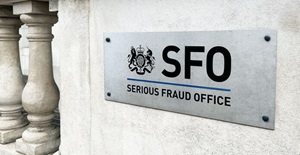Out-Law News 2 min. read
CPS updates corporate prosecution guidance ahead of ECCTA implementation
.jpg?h=190&w=362&rev=413951d9da56407489007cbeb9523a6e&hash=46E39F82A2EBF511AA76E8A73E1A70B9)
ECCTA has triggered new CPS guidance. Peter Dazeley/Getty Images
01 Sep 2025, 11:20 am
New changes to prosecution guidance in England and Wales will put the onus further on companies to ensure they carry out due diligence to avoid liability for corporate crime, an expert has warned.
The Crown Prosecution Service (CPS) has issued new guidance on its common approach, shared with the Serious Fraud Office (SFO), for corporate prosecutions in England and Wales. The guidance explains how the law of corporate criminal attribution operates and the public policy position.
The revised guidance is needed because of the impact of the Economic Crime and Corporate Transparency Act (ECCTA), the changes to corporate criminal attribution for the fraudulent conduct of senior managers and the new corporate criminal offence applicable to large organisations of failure to prevent specified economic crime by an associated person. The new corporate failure to prevent offence comes into effect on 1 September.
The guidance explains that organisations can be held criminally liable for senior managers’ illegal behaviour, with the categorisation of senior management not just restricted to the boardroom, but to anyone who plays a senior role in a company.
Fiona Cameron, a regulatory law expert at Pinsent Masons, said: “Under the previous law, to prosecute a company proof that the individual responsible for the offending was the company’s ‘directing mind and will’ was necessary”
“ECCTA reformed this stringent legal test for corporate attribution by introducing a senior manager test, which significantly broadens the scope of senior managers who attribute criminal liability to their employers. From 1 September, attribution for primary offences is strengthened by a secondary corporate offence of failing to prevent fraud intended to benefit the organisation, which is accompanied by a new statutory reasonable procedures defence.”
The guidance notes that the CPS and SFO will look to statutory routes to establish corporate liability, where possible, as they provide “clearer legal tests”; and highlights that the availability of statutory defences must be carefully considered by prosecutors when making a decision to prosecute.
The corporate prosecution guidance also explains the prosecution policy position: “The prosecution of corporate entities, in appropriate cases, is an important part of the enforcement of criminal law and ensures the full range of criminality can be captured. Such prosecutions have a deterrent effect, protect the public, support ethical business practices and lead to increased confidence in the criminal justice system. Equally, prosecution of a corporate entity should not be a substitute for the prosecution of criminally culpable individuals such as directors, senior managers, officers, employees, shareholders or persons associated with the relevant corporate entity.”
Public interest factors for and against corporate prosecutions are set out. Factors such as the company having an ineffective corporate compliance programme, failing to report wrongdoing to law enforcement within a reasonable time of the offending coming to light, or failing to report properly and fully the true extent of the wrongdoing weigh in favour of a company being prosecuted. Factors weighing against a corporate prosecution include the existence of an effective corporate compliance programme and a genuine proactive approach to self-reporting and remedial actions when wrongdoing arises.
Tom Stocker, head of corporate crime at Pinsent Masons, said: “The guidance balances a strong enforcement message by emphasising that robust compliance, proper and thorough internal investigations, and effective remediation – including, in appropriate cases, self-reporting – are public interest factors that weigh against prosecution. In advance of 1 September 2025 – ‘d-day’ for ECCTA – the SFO and other law enforcers are re-focussing their efforts on tackling business crime”.
“Equally, companies and other organisations need to focus on compliance and ensuring internal investigations and remediation are robust. It is not hot air or prosecutor bluster: the law has completely changed and non-compliant companies, directors and senior managers risk being held to account through the criminal law,” he said.
Latest News
Editor's Pick
Out-Law News
01 Aug 2025


